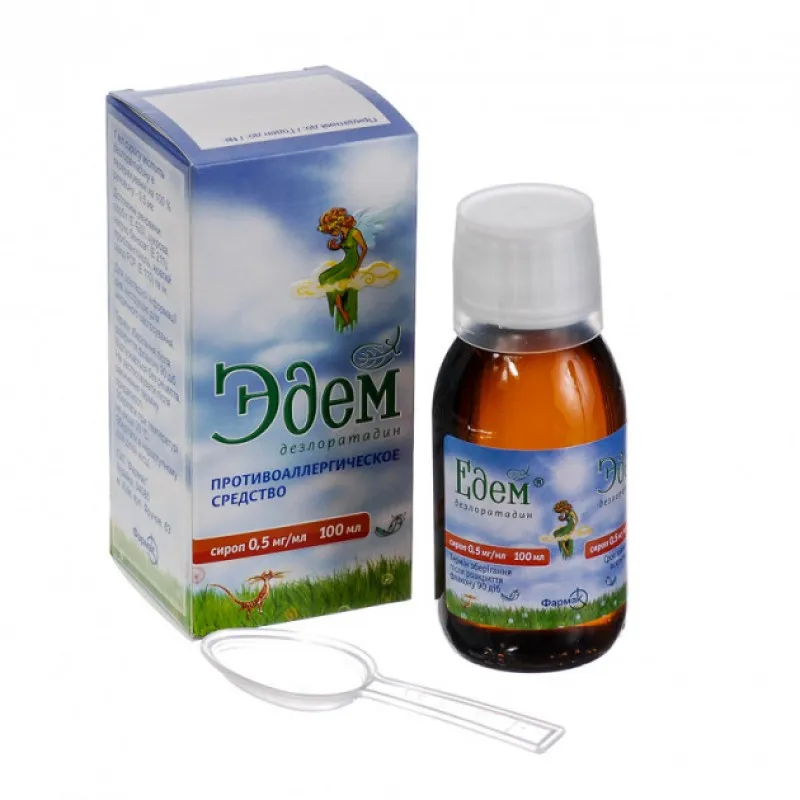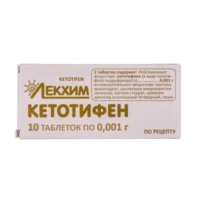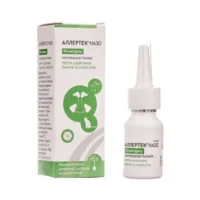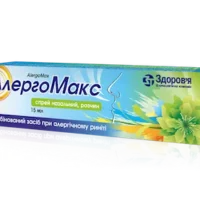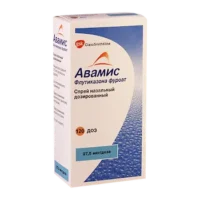Description
Edem (Desloratadine) Syrup 0.5 mg/ml – 100 ml
Composition
Active Ingredient: Desloratadine 0.5 mg/ml.
Mechanism of Action
Desloratadine is a potent and selective antagonist of histamine H1 receptors, effectively blocking the action of histamine in the body.
Pharmacological Properties
Pharmacological Effects: Desloratadine works by inhibiting histamine receptors, reducing symptoms of allergic rhinitis and chronic idiopathic urticaria such as sneezing, itching, and runny nose.
Indications for Use
Indications: Edem syrup is indicated for the relief of symptoms associated with allergic rhinitis and chronic idiopathic urticaria.
Contraindications
Contraindications: Do not use Edem syrup if you are allergic to desloratadine or loratadine.
Side Effects
Common side effects may include drowsiness. Avoid driving or operating heavy machinery if affected. Consult a healthcare provider if pregnant or breastfeeding.
Usage Instructions
Shake well before use. For adults and children over 12 years, take 10 ml once daily. For children aged 6-12 years, take 5 ml once daily. Consult a healthcare professional for children under 6 years. Take orally with or without food. Do not exceed recommended dosage.
Benefits Compared to Analogues
Edem syrup containing Desloratadine has shown efficacy in relieving symptoms of allergic rhinitis and chronic idiopathic urticaria with a low incidence of side effects compared to other antihistamines.
Suitable Patient Groups
Edem syrup is suitable for adults and children over 6 years of age. Consult a healthcare provider for children under 6 years. Use with caution in pregnant or breastfeeding individuals.
Storage and Shelf Life
Store Edem syrup in a cool, dry place away from direct sunlight. Do not freeze. Check the expiration date on the packaging and do not use after the stated shelf life.
Packaging Description
Edem syrup is available in a 100 ml bottle with a concentration of 0.5 mg/ml Desloratadine.
Clinical Evidence and Proven Effectiveness
Desloratadine has shown efficacy in improving quality of life and reducing symptoms in patients with allergic rhinitis and chronic idiopathic urticaria. Research published in the Journal of Allergy and Clinical Immunology has demonstrated its effectiveness. Clinical trials have shown significant relief from symptoms compared to a placebo, as published in the Annals of Allergy, Asthma & Immunology.

